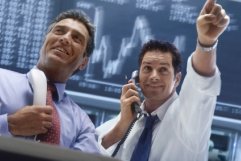It is very strange and at the same time surprising to see that many entrepreneurs who wish to set up their own forex brokerage, seldom bother to conduct a serious business plan, usually have no idea from where they are going to solicit clients and don’t know whether they are going to be regulated or not, and which jurisdiction.
It appears that the main reason for deciding to enter the forex business is “because the guy next door is making tons of money.”
Just because the forex market has a daily turnover of $4 trillion and so many brokerage firms are making millions every day does not mean that just about everybody can enter the forex business but more importantly survive. Competition is cut-throat and there is no room for error.
As we have mentioned in previous articles, the first thing to do is decide from which jurisdiction one is going to get the license to operate as a forex brokerage firm. It can be an EU jurisdiction like Cyprus or one of the offshore jurisdictions like BVI or Cayman Islands.
If the forex brokerage startup decides to be regulated in the EU, this means additional costs since all heads of departments need to be licensed persons, and for every service for which the forex brokerage has applied for licensing, it will need to have qualified staff, operating manuals, rules and procedures and the necessary capital. This means huge expenses which would range between EUR 350.000 to EUR 1 mln annually.
If one decides for an BVI or Cayman Islands license, the application process will still cost between $20.000 to $50.000, but the annual expenses will be significantly lower since offshore jurisdictions don’t require for the forex brokerage startup to employ qualified persons, or follow manuals on how it runs its business and there is one minimum capital requirement for all sorts of activity.
The choice of jurisdiction will decide in which geographical areas the forex brokerage startup will be active. If one has decided to be regulated in the EU, then the forex firm will be allowed to be active in the EU27 and beyond, whereas all those who have BVI or Cayman Islands license cannot legally operate in any of the EU27 member states.
Forex brokerage firms face very tough regulatory issues before being allowed to solicit business from US citizens while a number of countries such as China and India have banned forex trading on margin and leverage.
For this reason, it is very important for the forex brokerage startup to prepare a business plan as to where it wishes to be based and regulated, which countries and geographical areas it wishes to be active and whether or not it will be violating securities laws or not.



